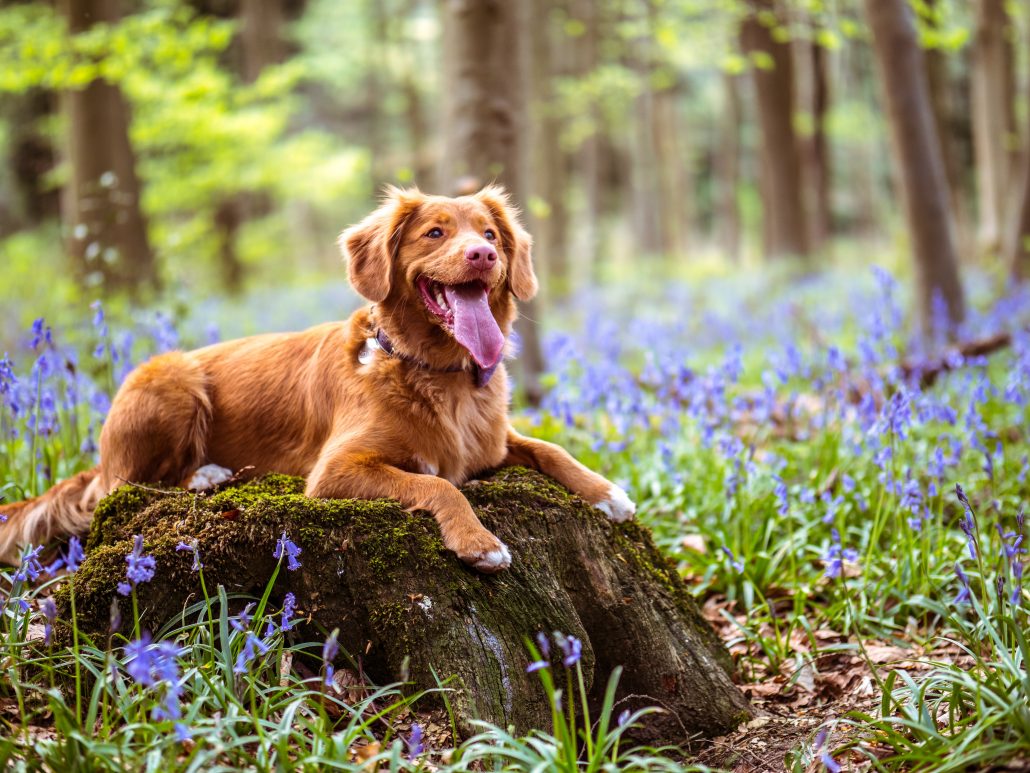Dogs with Anxiety Symptoms
Signs, Symptoms and How to Treat Dog Anxiety
One of the hardest things about the relationship with our furry friends is that they can’t tell us when something is up!
Dogs with Anxiety Symptoms: Does your dog have difficulty settling? Is their tail almost always between their legs? Do they avoid eye contact or retreat into a hiding space? If so, your dog may suffer from anxiety.
With issues such as anxiety, we need to be aware of the signs and symptoms so we can help our furry friends cope. If you think your dog might be anxious, there are various recognisable symptoms and treatments available to ease their worry.
Besides a tucked tail, fidgeting, avoidance of eye contact, and hiding behavior, dogs with anxiety symptoms also display the following behaviours:
- Spontaneous elimination (urination/bowel movement)
- Destructive behavior
- Panting
- Pacing
- Whining/whimpering
- Passive escape
- Trembling
- Excessive licking
- Dilated pupils
- Avoiding interactions
- Excessive yawning, lip licking, air sniffing, “shaking it off” like a wet dog
Dogs with anxiety symptoms may, periodically, express one or more of these behaviours. These are normal when they find themselves in an uncomfortable situation. However, this becomes a problem when many of these symptoms are exhibited at the same time, to the extreme, or for extended periods.

Dogs with Anxiety Symptoms
What Are The Causes?
Dogs with anxiety symptoms may become stressed and nervous for many reasons. These emotional triggers may be obvious, however it is often difficult to determine what is causing your dog’s reaction. These triggers may be found through trial and error and keeping a close eye on your dog’s body language and behaviour.
There are 4 main types of anxiety triggers that may be found in dogs. These include Separation anxiety, Generalized anxiety, Environmental anxiety and Social anxiety
Separation Anxiety
Dogs with anxiety symptoms are common. As they are pack animals, most dogs do not like to be left alone. Separation anxiety occurs when a dog that is hyper-attached to their owner is left alone. The stress and loneliness from being left alone often causes destructive behaviours.
Separation anxiety is often caused by:
- Being left alone for the first time or when they are used to being with people
- A Change of ownership
- Moving from a shelter to a home
- Change in routine or schedule
- Loss of a family member
To help you dog with anxiety symptoms, make sure your pet gets lots of exercise. It’s also key that you challenge your pet’s mind. Work their mind as well as their body. A tired, happy dog will be less stressed when you leave and occupied while you are gone. It is also important to not make a big deal about coming and going- many dogs sense this energy and increases their anxiety while you are gone.
Environmental Anxiety
This often presents as a fear of a specific location, such leaving the house or a vet clinic. Environmental anxiety can also be caused by loud noises or scary situations that our furry friends do not understand such as sirens, alarms, fireworks, or thunder.
There is nothing more soothing to an anxious dog than its owner’s touch. Start at the neck and work downward with long strokes. Try to keep one hand on the dog, while the other works to massage. In addition to touch calming coats and shirts apply mild, constant pressure to your dog’s torso, much like a swaddling cloth on a baby. These are recommended for dogs with any type of anxiety induced by travel, separation or noise.

Generalized Anxiety
Unfortunately, this cause for anxiety can’t always be determined. This often appears as “out of the blue” behaviours with no known cause or trigger. These can be seen in even the most well trained dogs.
Generalized anxiety is very common and will often go unrecognized. This is because the symptoms of dare subtle and don’t seem abnormal. Sometimes what is actually general anxiety is shrugged off as a common characteristic of a breed when, in fact, is not necessarily a “normal behavior”.
Dog breeds prone to general anxiety include:
- German & Australian Shepherd
- Labrador Retriever
- Border Collie
- Cocker Spaniel
- Greyhounds
- Many toy breeds
Social Anxiety
Social anxiety in dogs is the fear of people, other animals, unknown places, sights, sounds, or other unfamiliar stimuli in their environment. Your dog may be perfectly fine around you but then become anxious around strangers.
Depending on the dog, their level of anxiety can range from mild to extreme. It can cause a dog to act out or behave in abnormal/uncharacteristic ways.
Dogs with social anxiety symptoms are often the consequence of little to know social skills. This is commonly seen in shelter and rescue dogs who have had little to no contact to people or new situations. This is also seen in puppies who become overwhelmed in new situations, with new people and animals. Proper socialization from a young age will help them learn and adapt to new situations throughout their lives.
When treating dogs with anxiety symptoms, it is best to start small, as desensitising your pet can be a long and arduous process. Although it may take months, the results are well worth it. Through consistent exposure to new people and experiences, you will notice that your dog is relaxing more as things become more familiar.

Dogs with Anxiety Symptoms
Be Supportive and Patient
Learning and avoiding what causes your dog anxiety, ruling out underlying illnesses, and seeking professional help will all improve the quality of life for your anxious dog.
Scientific evidence has shown that severe stress and anxiety has negative effects on health in humans. This is also true for our furry counterparts as well. The stress of living with anxiety can have negative effects on both the health and lifespan of a dog. Thus, it is important to be active in helping reduce their stress and anxiety.
Most importantly- Don’t give up! The road may not be quick or easy, but with dedication and the right professional assistance, you can help your dog be happier and healthier.
Need expert advice on managing dogs with anxiety symptoms? Contact The House Call Vet today and our team of enthusiastic veterinarians are happy to assist.

